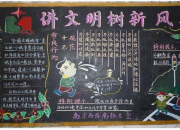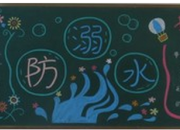外研社版高一英语教案
时间:2021-08-31教学目标
Knowledge and ability ob jective(知识与技能目标)
To help students to develop r eading, listening and speaking skills
To help students to develop the skill of commu nication
To help students to understand the infinitive and its usage.
Process and method objective(过程与方法目标)
1.Collaborative learning approach
2.To help the students use the grammar to do some exercises.
Emotion, attitude and values objective(情 感、态度与价值观的目标)
To help students to understand the different cultural customs of foreign countries.
教学重难点
To help students to develop r eading, listening and speaking skills
To help students to develop the skill of commu nication
To help students to understand the infinitive and its usage.
教学过程
Procedure:
Step 1 Review the vocabulary
1.to start with= to begin with 首先
2.on the bus 在车上
by bus 乘车
3.practise doing 练习做
4.think to oneself 心里想
5.come into one’s head 想到。。。,产生(某想法)
=come into one’s mind
=occur to sb.
=occur to one’s mind
6.What a shame 真遗憾!多可惜啊!
7.feel shame at 对 。。。感到羞耻,遗憾
feel ashamed of
8.small talk 闲谈,聊天
9.get started 开始
10.on the right track 做对了,摸着门路了
11.have fun doing/it’s fun doing 做某事很有趣
ADDITIONAL READING
1.social manners 社交礼仪
2.feel guilty 感到内疚
3.show up 到场,露面
4.reach out to 与。。。联系
5.as soon as possible 尽可能快的
6.on time 准时
7.lead to 导致
Step 2 the infinitive
a. 带to的不定式结构
1.能直接跟带to的不定式结构的动词主要有: want, ask, tell, hope,
learn, try, decide, forget, remember, like ,love, stop, go, come等。
2.动词不定式的否定形式是在不定式前直接加not,即not to do sth.。例如:
Jim told me not to wake up Kate.吉 姆告诉我别叫醒凯特。
b.不带to的不定式结构
以下几种情况使用不带to的动词不定式:
1.在固定词组had better之后。注意:had better的'否定形式是had better n ot do sth.。例如:
Yo u had better go home now.你最好现在回家。
It's cold outside. You'd better not go out.外面很冷,你最好不要出去。
2.在let, make, see, feel, watch, hear等感官或使役动词后,要跟不带to的动词不定式作宾语补足语。例如:
I made them give me the money back.我迫使他们把钱还给我。
I didn't see you come in.我没看见你进来。
3.在引导疑问句的why not之后。
"Why not+不带to的不定式"是Why don't you do…的省略,可以 用来提出建议或劝告。例如:
Why not go with us。为什么不和我们一起去呢。
Why not take a holiday。=Why don't you take a holiday。为什么不休个假呢。
【外研社版高一英语教案】相关文章:
8.外研社的教学反思











